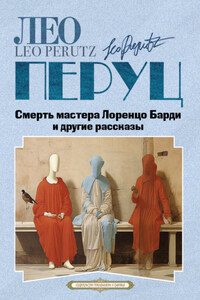TO JERRARD GRANT ALLEN, THE ONLY BEGETTER OF THESE ENSUING ADVENTURES
My Dear Grantie,
From the following pages, written with a single eye to your own personal tastes and predilections, you may, I trust, learn three Great Moral Lessons.
First, never to approach too near the edge of an active volcano.
Second, never to continue your intimacy with a man who deliberately and wickedly declines to pull you out of a burning crater.
And third, never to intrust the care of youth to a cannibal heathen South Sea Islander.
With the trifling exception of these three now enumerated, I am not aware that you can extract any Great Moral Lesson whatsoever from the hairbreadth escapes of Kea and her associates.
Having thus almost entirely satisfied your expressed wishes in this matter – for "a story without a moral" – I subscribe myself, with pride,
Your obedient servant and very loving father,
My brother Frank is a most practical boy. I may be prejudiced, but it seems to me somehow there's nothing like close personal contact with active volcanoes to teach a young fellow prudence, coolness, and adaptability to circumstances. "Tom," said he to me, as we stood and watched the queer party on deck, devouring taro-paste as a Neapolitan swallows down long strings of macaroni: "don't you think, if we've got to live so long in a native hut, and feed on this port of thing, we may as well use ourselves to their manners and customs, whatever they may be, at the pearliest convenient opportunity?"
"Haven't you heard, my dear boy," said I, "what the naval officer wrote when he was asked to report to the Admiralty on that very subject of the manners and customs of the South Sea Islanders? 'Manners they have none,' he replied with Spartan brevity, 'and their customs are beastly.'"
"Not a bit of it," Frank answered quickly in his jolly way. "For my part I think this sticky, pasty stuff they're eating with their fingers, though it's a bit stodgy, looks like real jam, and I'd much rather take my lunch off things like that up here on deck, out of a native calabash, than go down and eat a civilized meal with a knife and fork in that hoky-poky, stuffy little cabin there."
I confess, for myself, I didn't exactly like the look of it. Cosmopolitan as I am, I object to fingers as a substitute for spoons. We were on board the Royal Hawaiian mail steamer Liké Liké, 500 tons registered burden, from Honolulu for Hilo, in the island of Hawaii; and a quainter group than the natives on deck I'm bound to admit, in all my wanderings, by sea or by land, I had never set eyes on. The tiny steamer was built in fact on purpose to accommodate all tastes alike, be the same savage or civilized. Down stairs was a saloon where regular meals in the European fashion were well served by a dusky Polynesian steward in a white linen jacket, to such luxurious persons as preferred to take them in that orthodox manner. But the unsophisticated natives, in their picturesque dress, believing firmly in the truth of the proverb that fingers were made before forks, liked better to carry their own simple provisions in their baskets with them. They picnicked on deck in merry little circles, laughing and talking at the top of their voices (when they weren't sea-sick) as they squatted on their mats of woven grass round the family taro-bowl. From this common dish, parents and children, young men and maidens, fed all alike, each dipping his forefinger dexterously into the sticky mess, and then twisting it round, as one might twist a lot of half-boiled toffee, till they landed it safely with a sudden twirl in their appreciative mouths. "It must be awfully good," Frank went on meditatively, eyeing the doubtful mixture with a hungry look. "They seem to enjoy it so, or else of course they wouldn't lick their fingers! I wish we could strike up a friendship now with some of these amiable light-coloured natives, and get them to share their lunch with us off-hand. I wonder what they call this precious stuff of theirs?"
"We call it taro," one of the nearest group answered, greatly to our surprise, in perfectly good and clear English. "Would you like to taste some? It's very nice. We shall be delighted if you'll try it. Hawaiians are always proud indeed to show any hospitality in their power to friendly strangers."
She was a pretty young girl of eighteen who spoke, lighter a good deal in complexion than most of the other natives around, and she was seated with a tall, dark, serious-looking old Hawaiian at a calabashful of the strange pasty mixture the appearance of which had so attracted Frank's favourable attention. As she spoke, she moved a little aside to make room for us on her mat, as if they were all playing Hunt-the-Slipper; and Frank, whose fault, I'm bound to admit, was never shyness, squatted down at once, nothing loth, tailor-fashion, on the deck by her side, and with many thanks accepted the courteous offer of a dip in the taro-bowl.
"Upon my word, Tom," he said, twirling a great dab of the queer-looking paste awkwardly into his mouth, "it's first-rate grub when you come to taste it. A little sour to be sure, but as good as pancakes. If you're going to feed us like this on the islands, sir," he added, turning to the stern old man, "I don't think we'll be in any hurry to run away again."












